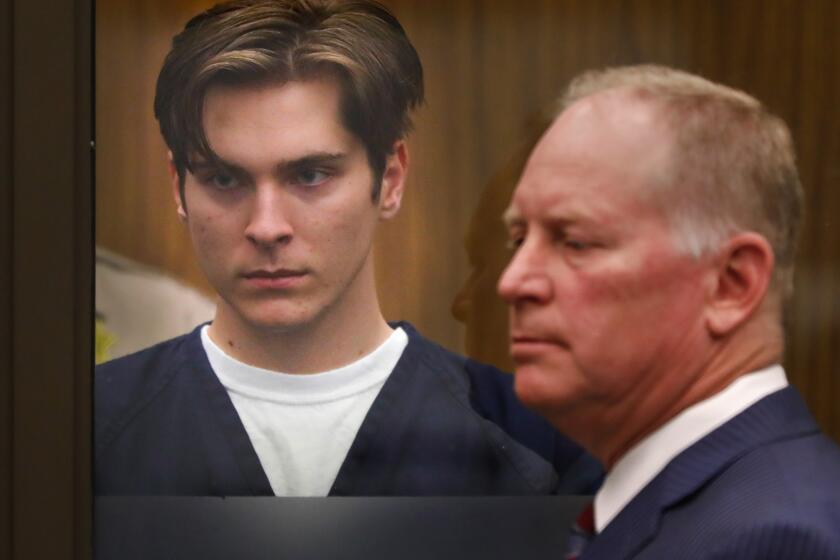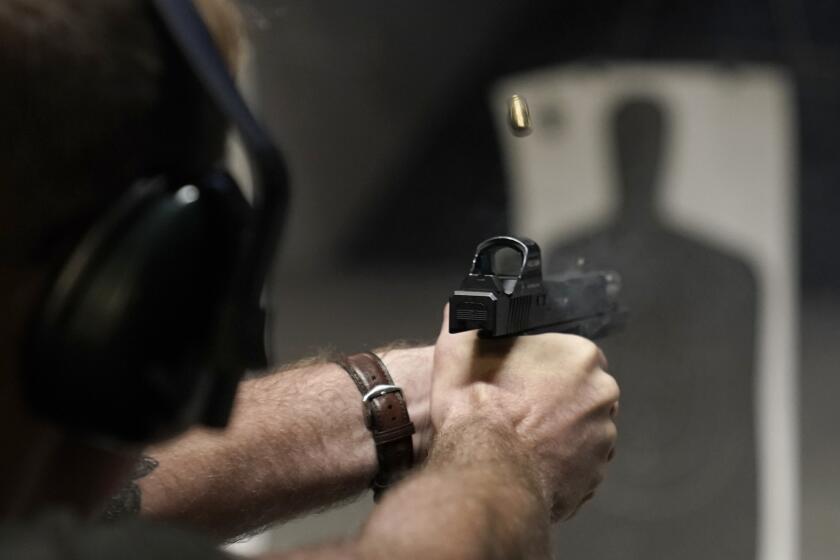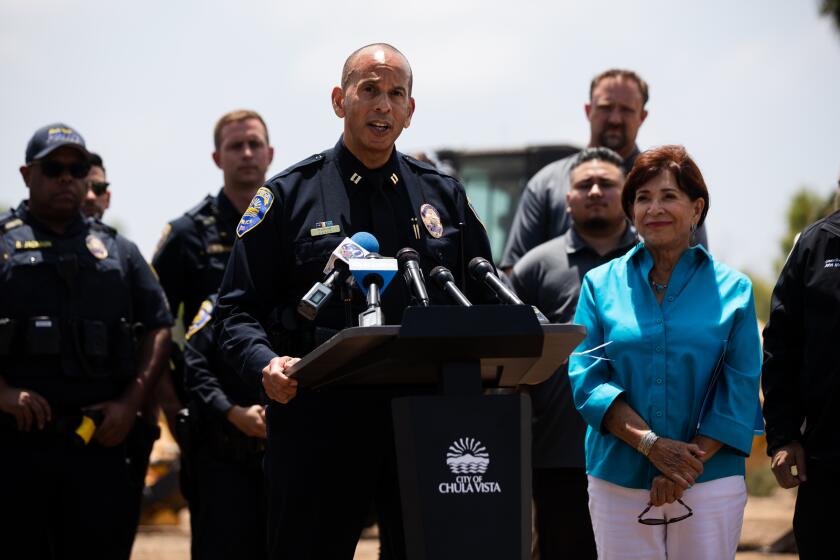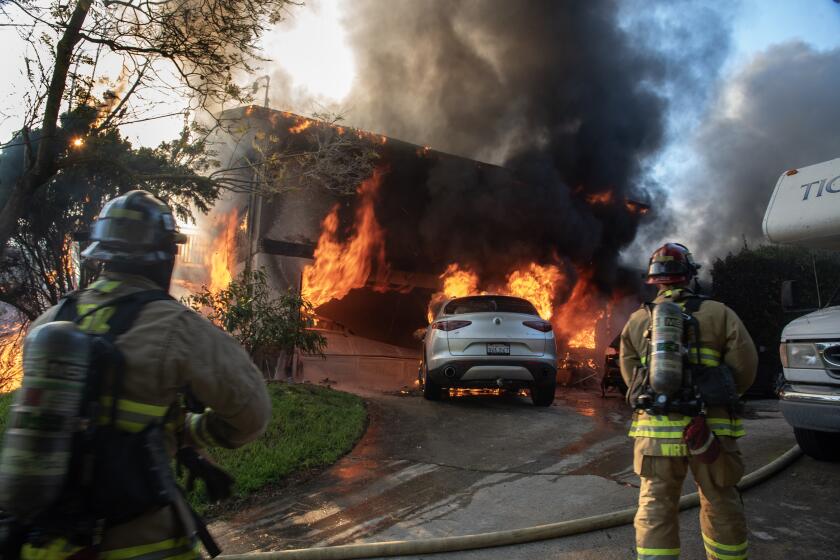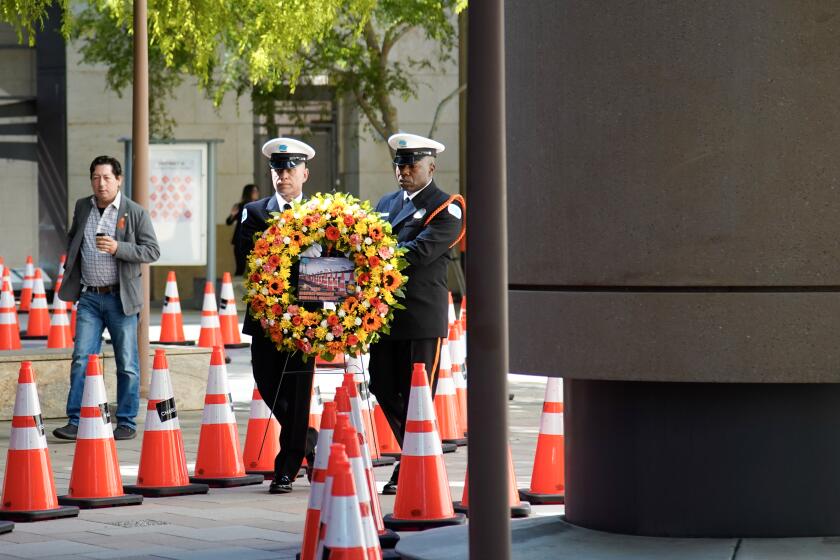Activists, community members in San Diego mark 2nd anniversary of George Floyd’s death
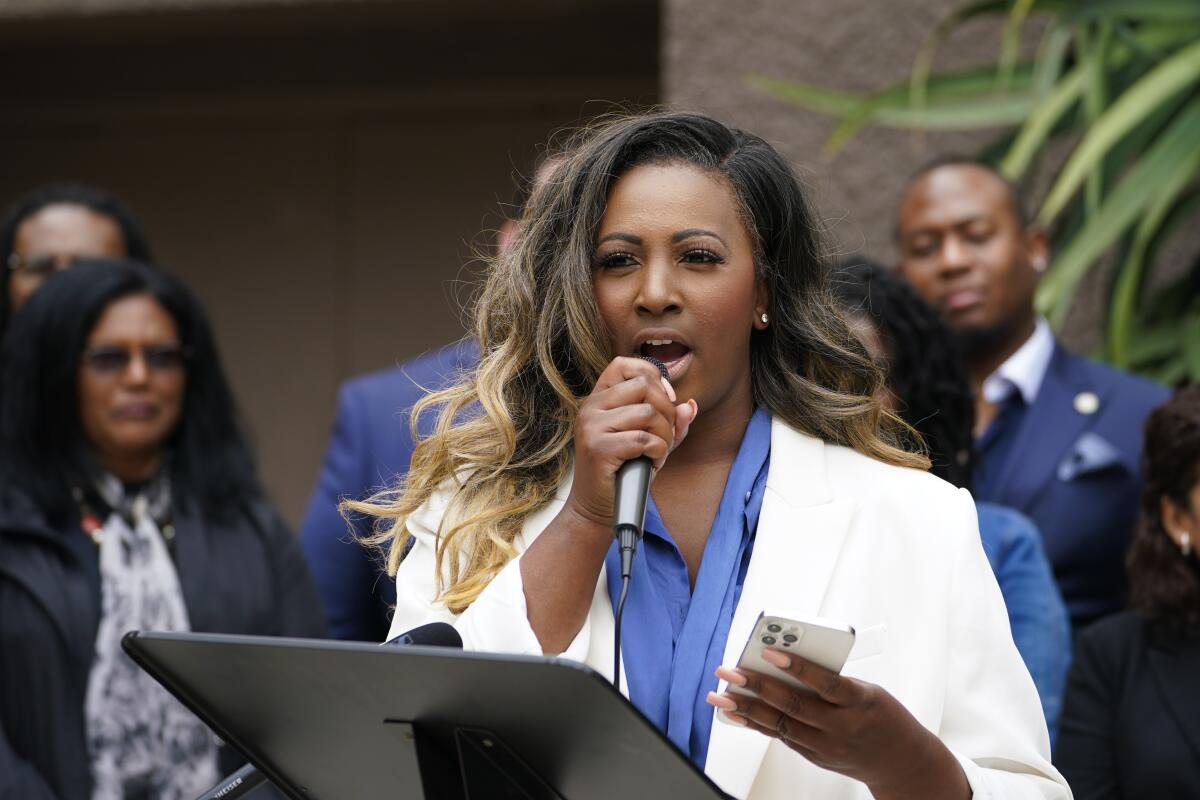
Demands continue for racial justice and policing reforms and accountability
As the nation marked two years since the murder of George Floyd by a Minneapolis police officer, several Black community leaders in San Diego gathered to continue pressing for racial justice.
Dubbed the George Floyd Day of Remembrance and Accountability, several people spoke at a news conference held outside San Diego City Hall Wednesday morning. The event was hosted by the local chapter of Black American Political Association of California.
Chair Ellen Nash said the group wants people, politicians, businesses and communities “to recommit to bridge the deep racial divides and address this moment with immediate, real, sustainable and systemic change.” She also wants to “amplify the visibility and voices of the Black community,” and address systemic racism and racial inequalities.
On May 25, 2020 — Memorial Day — Floyd, a 46-year-old Black man, was handcuffed, in custody and on the ground when a White Minneapolis police officer pinned Floyd down with a knee on his neck for more than nine minutes. Bystander video captured the incident and showed Floyd pleading with the officer and repeatedly saying he couldn’t breathe.
Former Minneapolis police officer Derek Chauvin was convicted of murder and manslaughter last year and sentenced to more than 22 years in state prison. He also pleaded guilty in a federal case to violating Floyd’s civil rights.
Two other officers involved in Floyd’s arrest are scheduled to stand trial on state charges in June. A third officer pleaded guilty to aiding and abetting second-degree manslaughter for his role in the killing. All three were convicted in federal court in February of willfully violating Floyd’s rights.
The killing of Floyd sparked nationwide anger and demands for law enforcement and political leaders to address racial injustice and bias in policing. Thousands marched in cities across the country, including San Diego, demanding reform.
“Don’t let George Floyd’s death be in vain,” activist Aeiramique Glass-Blake said during Wednesday’s event. “He did not sacrifice his life. His life was taken. And we must be sure to bring justice not just to him but to all of us who experience racial injustice every single day.”
Glass-Blake said that after Floyd’s death, politicians and companies were “passionate” about racial justice, but that seemed to dissipate.
“And two years later, you know what we have a lot of? New HR departments. New diversity, equity and inclusion departments. And that is the extent of what many people are doing,” she said.
Glass-Blake said she didn’t want just a remembrance of George Floyd — she wants continued accountability from politicians. “All of the promises made — I want a status update,” she said.
Bishop Cornelius Bowser of Charity Apostolic Church, an activist for police and justice reform, said that for real change to come, law enforcement must concede several points, including that pretext stops are biased, that police play a role in mass incarceration and that there should be a national police licensing board.
Bowser pointed to the proposed PrOTECT act, which he said would hold police accountable to the community and protect against over-policing by curtailing pretext stops, and instead requiring police to have probable cause to stop a person. The locally based Coalition for Police Accountability and Transparency is pushing the city of San Diego to enact the ordinance, crafted community groups pushing for police reform.
“If you are in law enforcement and I have not committed a crime, leave me alone,” Bowser said. “Black people are suffering extra police attention while not engaged in criminal behavior, and this needs to stop.”
The City Council has not yet formally discussed the ordinance. The city’s Public Safety and Livable Neighborhoods committee has asked the City Attorney’s Office to review the proposal.
There have been some local changes. Within days of Floyd’s death, law enforcement agencies across the county agreed to end using the controversial carotid restraint, or sleeper hold, on people. Later that year, San Diego city voters approved a proposal to create of an independent Commission on Police Practices. Crafting the commission is still in the works, and may last another year.
Nash noted that the second anniversary of Floyd’s killing comes less than two weeks after racially motivated massacre in which a teenage self-avowed White supremacist gunned down 10 people in a supermarket in a predominately Black neighborhood in Buffalo, N.Y. The following day several people were shot after a Taiwanese church service in Orange County.
The anniversary is also a day after a teenage gunman shot and killed 19 children and two teachers at a Texas elementary school — “a parent’s worst nightmare,” Nash said.
“And now as we reflect on the painful climate of our country, we cannot forget the murders of George Floyd, Ahmaud Arbery, Breonna Taylor, Rayshard Brooks and so many others whose murders continue to ignite righteous anger and demonstrations of racial justice throughout San Diego and the country as a whole,” she said.
The Associated Press contributed to this report.
The latest news, as soon as it breaks.
Get our email alerts straight to your inbox.
You may occasionally receive promotional content from the San Diego Union-Tribune.

